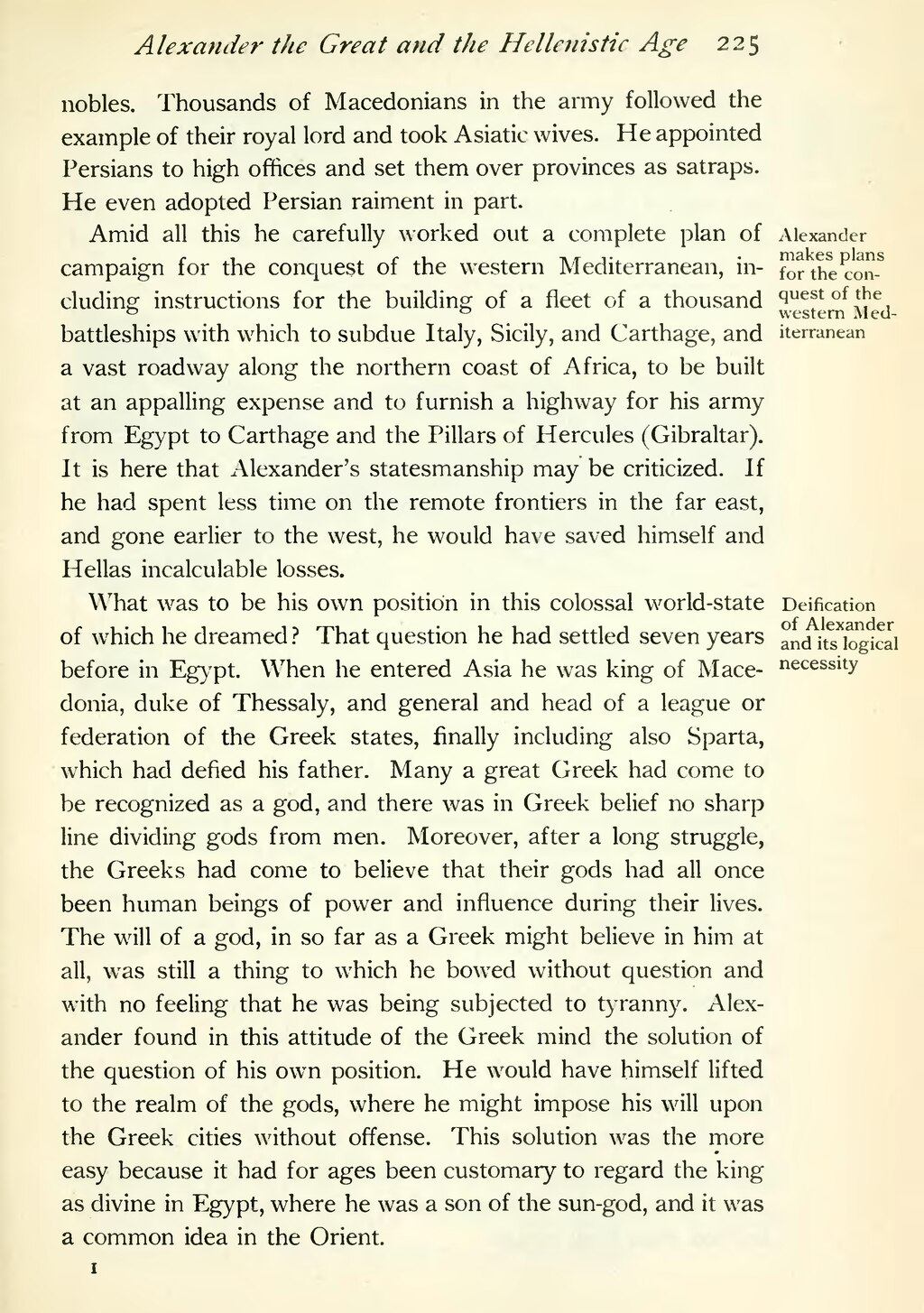Alexander the Great and the Hellenistic Age 225 nobles. Thousands of Macedonians in the army followed the example of their royal lord and took Asiatic wives. He appointed Persians to high offices and set them over provinces as satraps. He even adopted Persian raiment in part. Amid all this he carefully worked out a complete plan of Alexander campaign for the conquest of the western Mediterranean, in- "orthe^on-^ cludins: instructions for the buildinsr of a fleet of a thousand ^"^f °^!!?^, o ^ western Med- batdeships with which to subdue Italy, Sicily, and Carthage, and iterranean a vast roadway along the northern coast of Africa, to be built at an appalling expense and to furnish a highway for his army from Egypt to Carthage and the Pillars of Hercules (Gibraltar). It is here that Alexander's statesmanship may be criticized. If he had spent less time on the remote frontiers in the far east, and gone earlier to the west, he would have saved himself and Hellas incalculable losses. What was to be his own position in this colossal world-state Deification of which he dreamed } That question he had settled seven years ^^^ itTlogical before in Egypt. When he entered Asia he was king of Mace- donia, duke of Thessaly, and general and head of a league or federation of the Greek states, finally including also Sparta, which had defied his father. Many a great Greek had come to be recognized as a god, and there was in Greek belief no sharp line dividing gods from men. Moreover, after a long struggle, the Greeks had come to believe that their gods had all once been human beings of power and influence during their lives. The will of a god, in so far as a Greek might believe in him at all, was still a thing to which he bowed without question and with no feeling that he was being subjected to tyranny. Alex- ander found in this attitude of the Greek mind the solution of the question of his own position. He would have himself lifted to the realm of the gods, where he might impose his will upon the Greek cities without offense. This solution was the more easy because it had for ages been customary to regard the king as divine in Egypt, where he was a son of the sun-god, and it was a common idea in the Orient. I necessity
